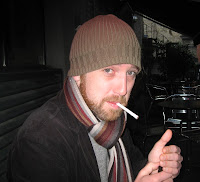
A chance meeting in a London restaurant gives climatologist Adam Kindred the opportunity to become a Good Samaritan, when his distracted new acquaintance, Dr Wang, leaves his briefcase behind. On delivering the briefcase, however, Adam discovers Dr Wang knifed and dying. Moments later he is running for his life; within hours, pursued by Dr Wang’s killer, he is the subject of a nation-wide manhunt and embroiled in the corruption behind a multi-billion dollar scandal.
William Boyd is a much-decorated writer, winning the Whitbread Award in 1981 for ‘A Good Man in Africa’, and the Costa Award in 2006 for ‘Restless’, along with numerous other prizes, and securing a pair of shortlist nominations for Booker and IMPAC for ‘An Ice-Cream War’ and ‘Any Human Heart’, respectively. A prolific screenwriter and film director, he has always maintained a sharp distinction between his film work and that of his novels, but ‘Ordinary Thunderstorms’ offers a propulsive, cinematic narrative. Certainly the novel, despite its deceptively sedate pace, has the page-turning quality of a genre novel, which suggests that Boyd was aiming yet again for crossover appeal – ‘Restless’, for example, bore all the hallmarks of the spy thriller.
To the crime fiction fan, and particularly those familiar with the work of David Goodis and Gil Brewer, Adam Kindred’s plight will be a familiar one. Intelligent, urbane and highly educated, he nevertheless finds himself skulking in the shadows and reduced to a primitive quality of living as, in a desperate bid to render himself anonymous, he foregoes the props of contemporary life – credit cards, mobile phones, cash, etc. – to live rough in the very heart of London. The theme touches on the alienation intrinsic to the modern city, of our inability, whether willing or not, to successfully interact with those around us. Boyd’s protagonists invariably explore how a quintessential Englishness contends with an unfamiliar landscape, be that Africa, Los Angeles or the Philippines, but here the homeless Kindred (the name is ironically instructive) is a stranger in a land that should not be strange at all, and is yet utterly, and horrifyingly, foreign.
Kindred’s exploration of his underground world is fascinating in itself, but Boyd surrounds him with a host of characters, some malevolent, others benign, most simply thoughtlessly callous in their own pursuit of whatever it will take to make it through the day. As the characters gradually flesh out, there is a suspicion that Boyd is simply toying with the genre tropes, as a policewoman, a company CEO, a prostitute, a lord and a killer-for-hire all emerge to engage with Kindred on some level. But even the minor characters get their full due here, and some of the main players, such as the prostitute who drugs her son with a ‘happy-mix’ of rum and pills before going out on the game for the night, are simply heart-breaking.
The style is equally pleasing. There are few of the conventional cliff-hanger endings to chapters, and Boyd’s prose is for the most part resolutely deadpan, eschewing tension-building pyrotechnics for a faith in his readers’ ability to empathise with his characters. He does, on occasion, digress into purple prose, which can be irritating, especially when offered by characters who wouldn’t have access to such language, such as an illiterate prostitute or an ex-solider hitman, but these are few and forgivable lapses, as are the occasional deus ex machina plot-twists that rely too heavily on coincidence.
Those caveats aside, ‘Ordinary Thunderstorms’ is a powerful, brooding novel of ideas with the compulsive readability of a straightforward thriller. Sturm und Drang, indeed. -
Declan Burke This review was first published in the
Sunday Business Post
 Further to Dave White’s post on blogs, wherein he lists the usual crap you can find on most blogs, he neglected to mention the ‘Totally Random Rant’, in which someone – your humble host, say – goes off at a tangent that has nothing to do with anything, really. To wit: today I came across the latest in what seems to be the latest and most irritating cliché of any kind of writing, the descriptive sentence that begins with, “It was all …”.
Further to Dave White’s post on blogs, wherein he lists the usual crap you can find on most blogs, he neglected to mention the ‘Totally Random Rant’, in which someone – your humble host, say – goes off at a tangent that has nothing to do with anything, really. To wit: today I came across the latest in what seems to be the latest and most irritating cliché of any kind of writing, the descriptive sentence that begins with, “It was all …”. 





